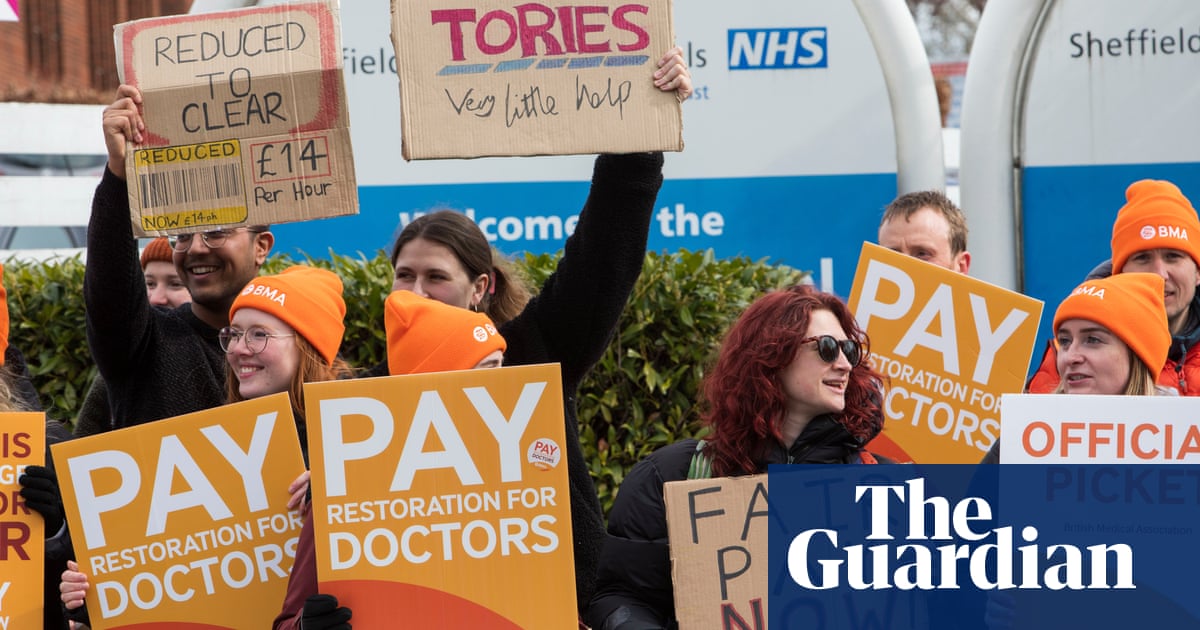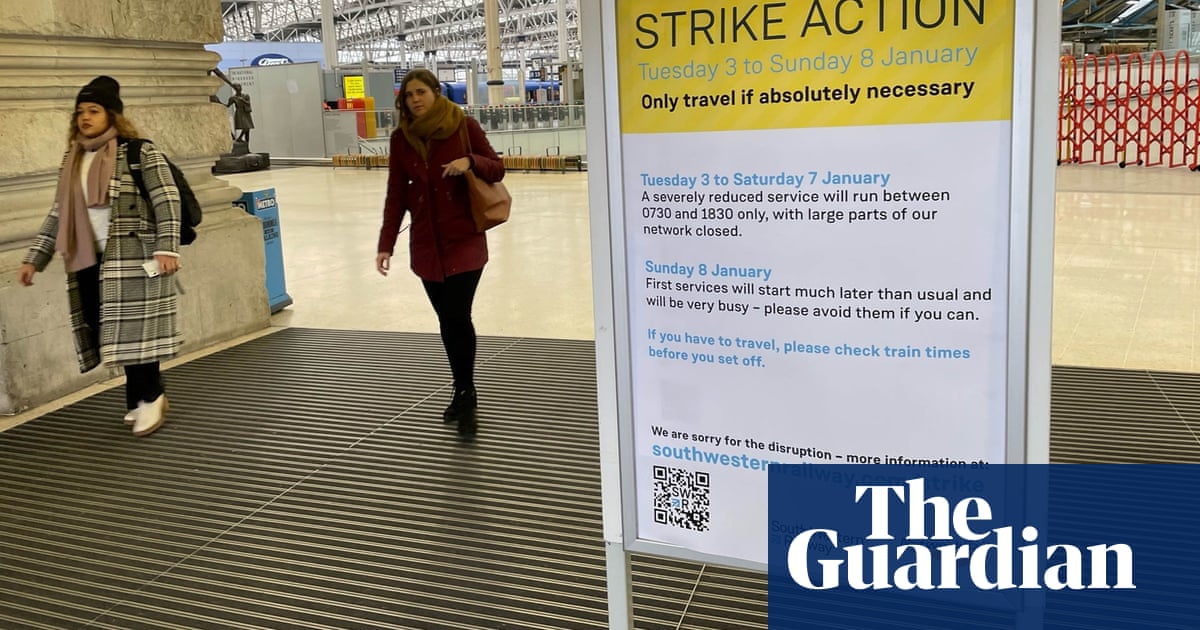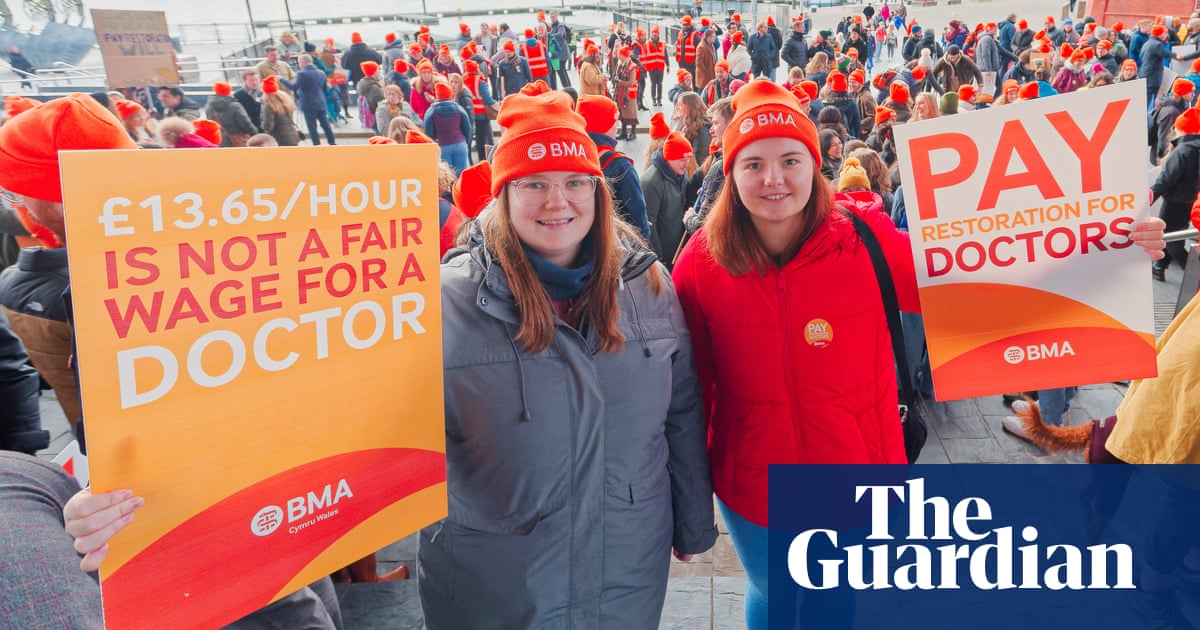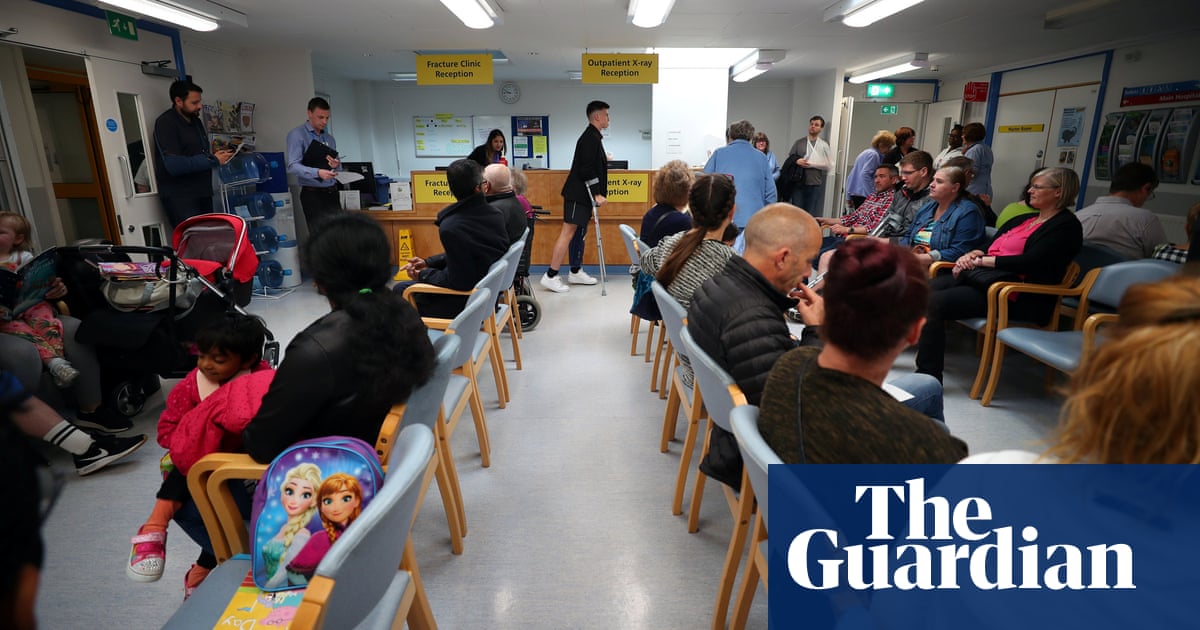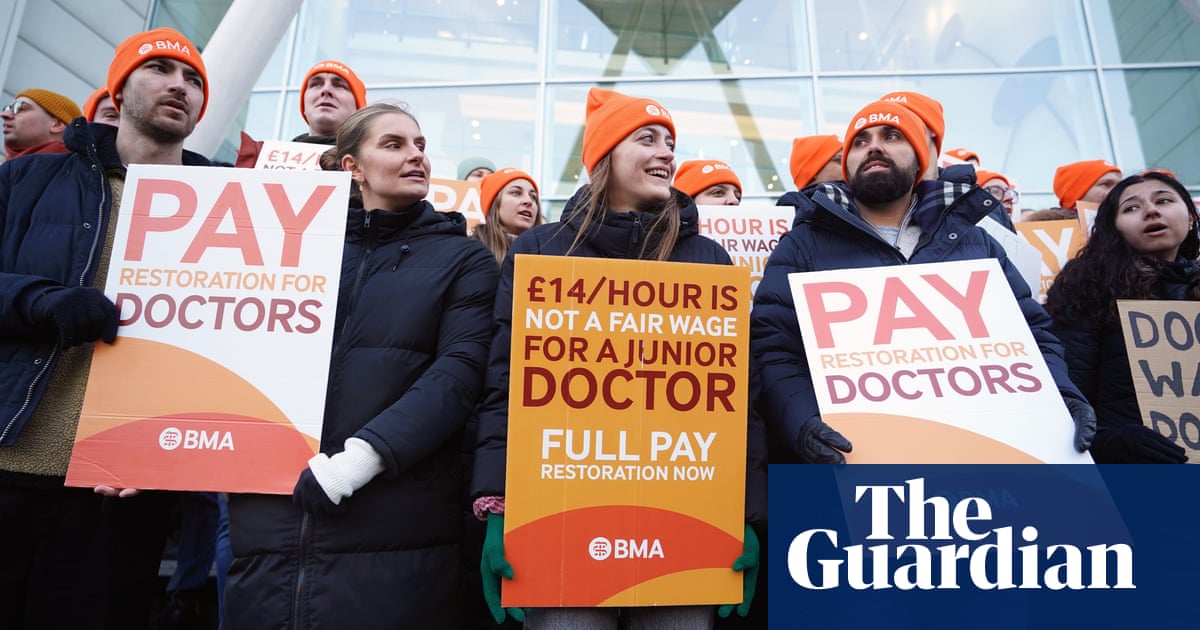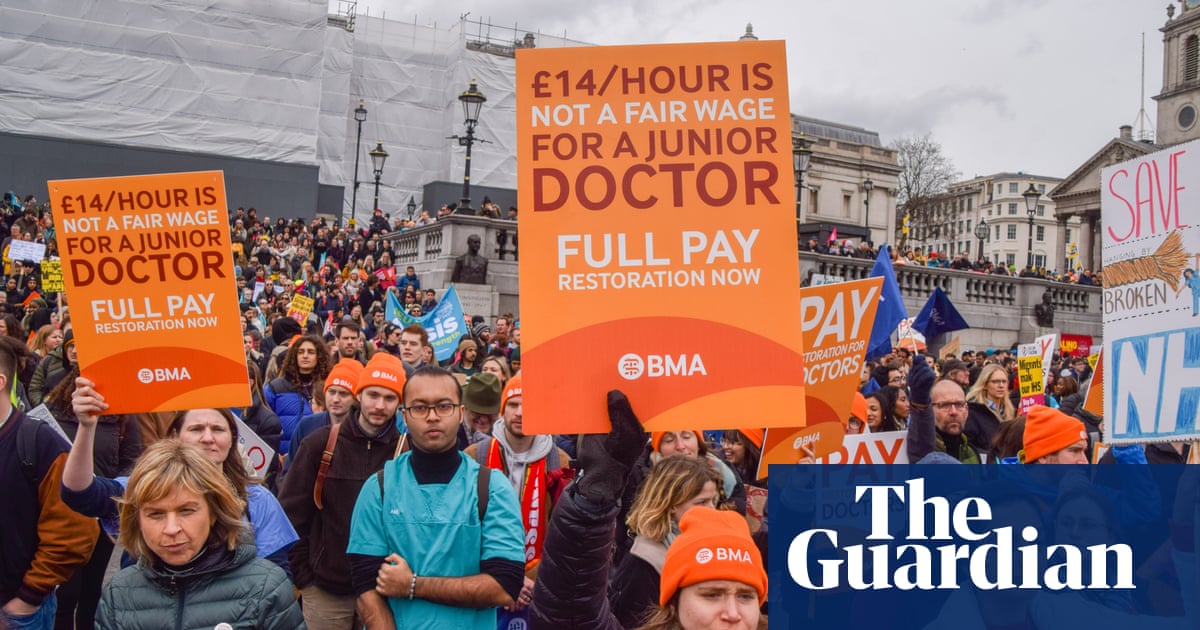
Junior doctors in England have voted to accept the government’s pay offer, bringing to an end one of the longest and bitterest disputes in recent NHS history.
Just under two-thirds (66%) of the 45,830 junior doctors who voted backed the deal, which will see them receiving an average salary increase of 22.3% over two years.
It ends 18 months of strikes during which junior doctors stopped work on 44 days – sometimes for five days at a time – causing huge disruption to the NHS.
The 22.3% increase was less than the 35% rise the British Medical Association’s junior doctors committee (JDC) had been seeking for the last two years as “full pay restoration” for the fall in their earnings they have experienced since 2008. But it proved enough to persuade a sizeable majority of that branch of the medical profession to call off their campaign of stoppages.
Dr Robert Laurenson and Dr Vivek Trevedi, the JDC’s co-chairs, said: “It should never have taken so long to get here but we have shown what can be accomplished with our determination and with a government willing to sit down and talk realistically about a path to pay restoration.”
Their acceptance of the deal will come as a relief to Wes Streeting, who made settling the dispute a priority when he became health secretary on 5 July.
Streeting said: “We inherited a broken NHS, the most devastating dispute in the health service’s history, and negotiations hadn’t taken place with the previous ministers since March.
“Things should never have been allowed to get this bad. That’s why I made ending the strikes a priority, and we negotiated an end to them in just three weeks.
“I am pleased that our offer has been accepted, ending the strikes ahead of looming winter pressures on the NHS.”
In all, 30,227 of the 45,830 junior doctors who voted backed the deal, which the JDC said in July was “the best offer available at this moment”, while 15,596 (34%) voted against.
The deal will also see junior doctors change their name to “resident doctors” and be paid more reliably for extra hours they work. In addition, the doctors and dentists’ review body will factor the NHS-wide shortage of doctors into its future advice to ministers about medics’ pay.
The JDC warned Streeting that they could strike again in the future if the pay review body did not recommend big enough pay uplifts.
Laurenson and Trevedi said: “Mr Streeting has acknowledged our pay has fallen behind and has talked about a journey to pay restoration. He believes the pay review body is the right vehicle for this, and if he is right then no doctor need strike over pay in future.
“However, in the event the pay review body disappoints, he needs to be prepared for the consequences.”
Danny Mortimer, the chief executive of NHS Employers, welcomed the news. “Health leaders will breathe a massive sigh of relief to know that the ongoing pay dispute between resident doctors and government has come to a successful resolution. The last thing our members wanted was the threat of more strikes over what is expected to be a very difficult winter,” he said.




